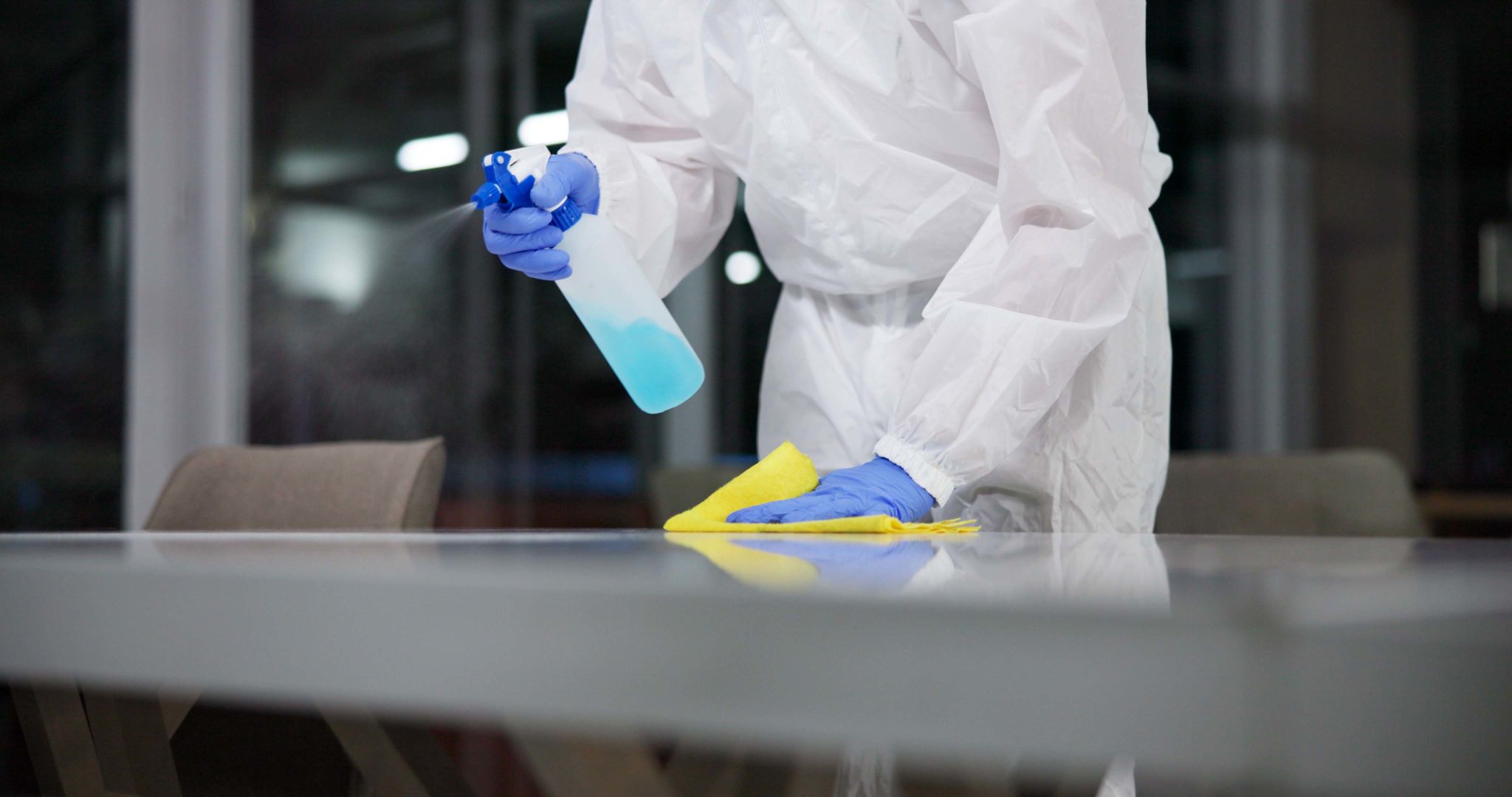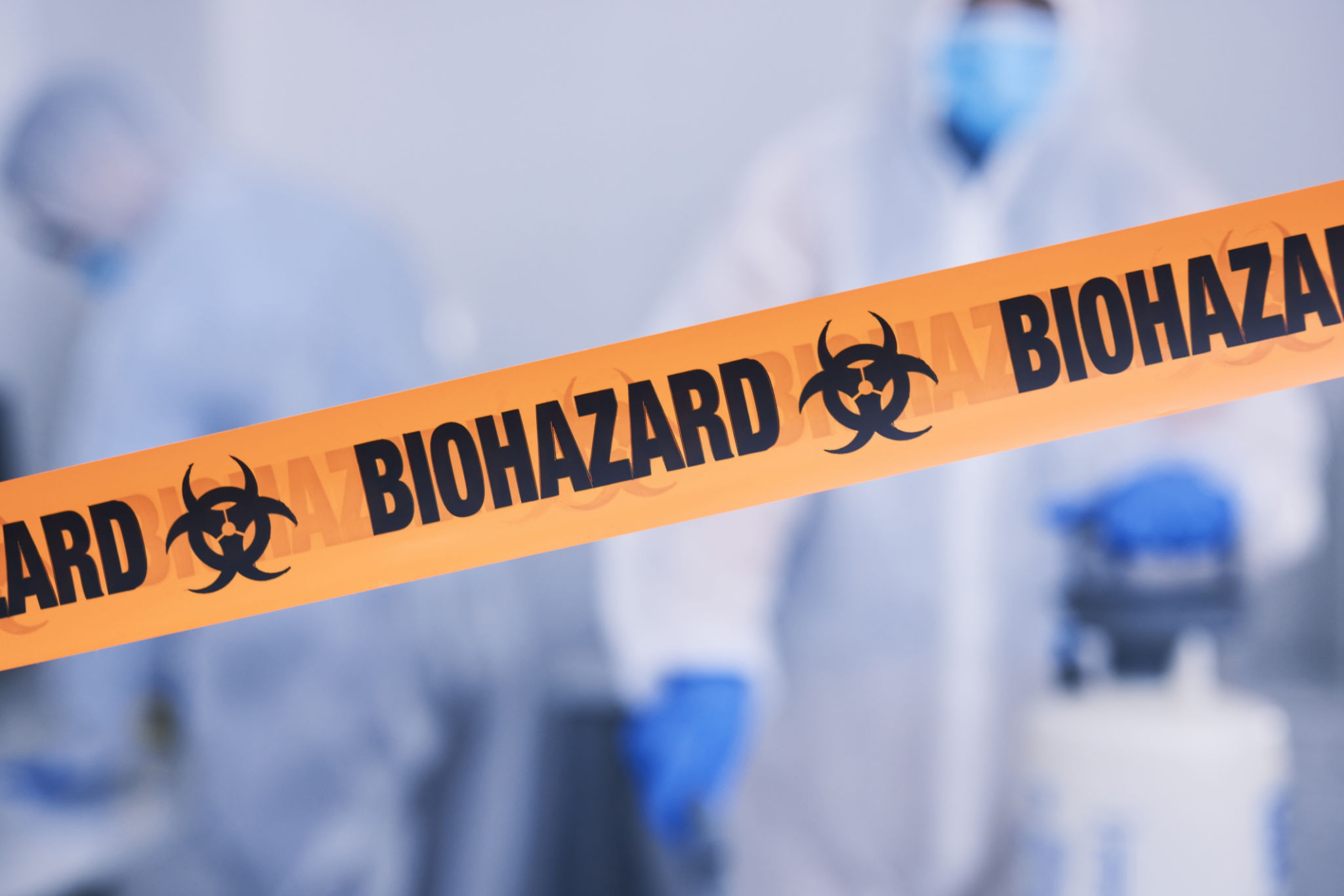Expert Insights: The Importance of Professional Biohazard Decontamination
Understanding Biohazard Decontamination
Biohazard decontamination is a critical process that involves the removal, cleaning, and disinfection of biological and chemical contaminants. These hazards may include bloodborne pathogens, bacteria, viruses, and other potentially infectious materials. Professional biohazard decontamination ensures that these threats are effectively neutralized to protect public health and safety.
When dealing with biohazards, the stakes are high. Improper handling can lead to serious health risks, including infection and disease spread. Therefore, it's crucial to rely on experts who are trained in managing these dangerous situations. Professionals in biohazard decontamination are equipped with the knowledge and tools necessary to safely and efficiently manage these risks.

The Risks of DIY Decontamination
While it may be tempting to handle a biohazard situation on your own, the risks far outweigh any potential savings. DIY decontamination often lacks the necessary expertise and equipment to ensure complete safety. Without proper training, individuals might inadvertently expose themselves and others to harmful pathogens.
Moreover, improper decontamination can lead to cross-contamination, further spreading contaminants to other areas. This can exacerbate the problem and increase the potential for harm. By contrast, professional services adhere to strict protocols and regulatory standards to ensure thorough decontamination.
The Importance of Specialized Equipment
Professional biohazard decontamination teams utilize specialized equipment designed to contain and eliminate hazardous materials. This equipment includes personal protective gear, advanced cleaning tools, and industrial-grade disinfectants. Such tools are essential in maintaining a safe environment during the decontamination process.

Regulatory Compliance and Safety Standards
Biohazard decontamination is governed by stringent regulations and safety standards. Professionals in this field are well-versed in these guidelines, which are crucial for ensuring safe and effective decontamination. Compliance with regulations not only protects public health but also ensures that businesses and property owners are shielded from legal liabilities.
For instance, regulations from organizations like the Occupational Safety and Health Administration (OSHA) set forth specific requirements for handling and disposing of biohazardous materials. Professional decontamination services ensure adherence to these standards, providing peace of mind for all parties involved.
The Role of Training and Expertise
Effective biohazard decontamination requires extensive training and experience. Professionals in this field undergo rigorous education in identifying and managing various types of biohazards. This expertise allows them to implement the most appropriate cleaning strategies for each unique situation.

The Benefits of Hiring Professionals
Engaging professional biohazard decontamination services offers numerous benefits. First and foremost, it ensures the safety of individuals and communities by effectively eliminating hazardous threats. Additionally, professional services provide efficient response times, minimizing disruption to daily operations.
Furthermore, experts bring a level of thoroughness that is unmatched by amateur efforts. They conduct comprehensive assessments to identify all affected areas, ensuring no hidden dangers remain. This attention to detail is crucial in protecting both people and properties from future risks.
Conclusion
In conclusion, the importance of professional biohazard decontamination cannot be overstated. It is a critical service that safeguards public health by effectively managing dangerous contaminants. By relying on trained experts, individuals and businesses can rest assured that their environments are safe and compliant with all necessary regulations.
When faced with a biohazard situation, always opt for professional expertise to ensure safety and peace of mind.
